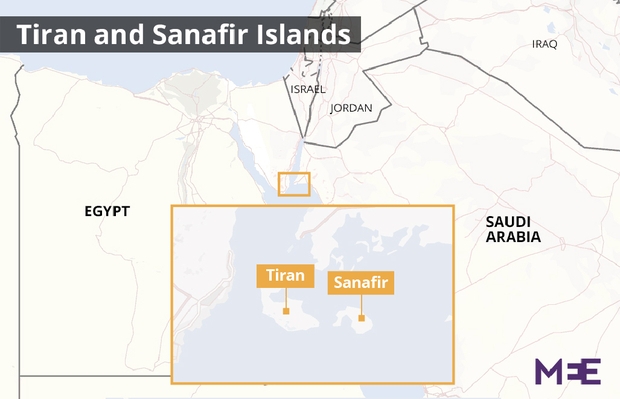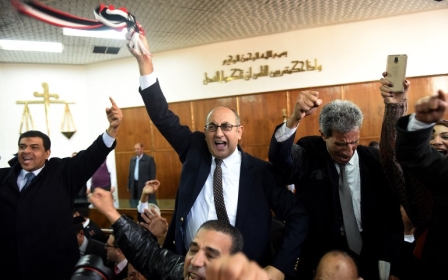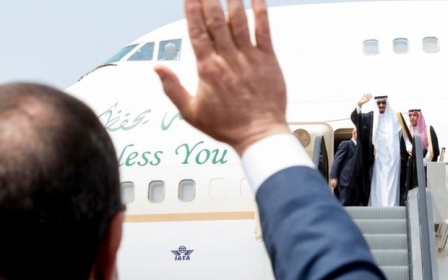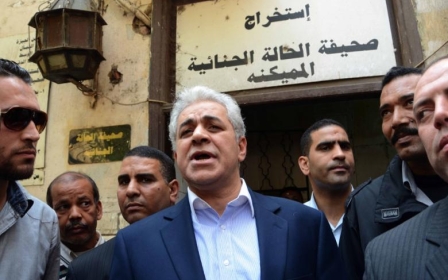Prince bin Salman called 'liar' after blaming Brotherhood for Saudi-Egypt tension
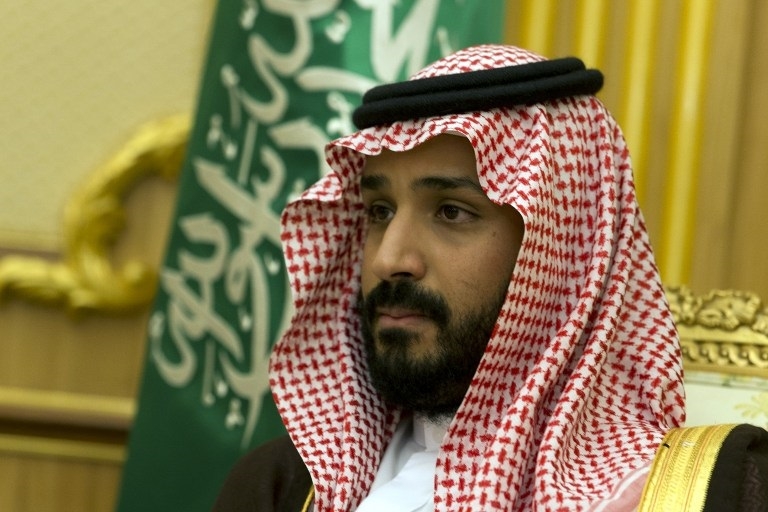
Egyptian social media activists have labelled Saudi deputy crown prince and minister of defence Mohammed bin Salman a "liar" after he said Egypt’s Muslim Brotherhood and Iran were trying to drive a wedge between the two countries.
In an interview with Saudi state TV on Tuesday, the crown prince said that "Egypt-Saudi relations are strong and deep" while asserting that “there are no negative feelings between the two countries”.
Bin Salman accused the Muslim Brotherhood and Tehran of trying to damage the two country’s bilateral ties.
"The enemies of the [Saudi] kingdom and Egypt are spreading propaganda in an attempt to harm our relationship," he said.
But social media activists pointed out on Twitter that it was pro-government television anchors, and not Brotherhood-linked media, who had spoken out against Saudi Arabia during the past year.
Translation: Mohamed Bin Salman claims that it was Brotherhood-linked media which attacked Saudi Arabia! That’s unbelievable. These media persons, such as Eissa (Ibrahim Eissa) and Husseiny (Yusuf al-Husseiny) belong to Sisi!
Translation: It’s funny how Bin Salman described the media which attack Saudi Arabia as Brotherhood-linked, while at the same time he said that the islands [Sanafir and Tiran] are Saudi…how stupid.
Meanwhile, other social media activists including the opposition media network Rassd published on a collation of video footage showing pro-Sisi television anchors attacking Saudi Arabia.
Translation: Bin Salman lied today when he claimed the Brotherhood was responsible for souring relations between Egypt and Saudi Arabia. Watch this video.
Egypt-Saudi ties came under strain last October after Cairo voted in favour of a Russia-proposed draft resolution on Syria at the UN Security Council.
Following the vote, Saudi state oil firm Aramco suspended oil shipments to Egypt, forcing Cairo to purchase oil from other sources in order to meet its domestic demand.
Aramco eventually resumed its oil shipments to Egypt in mid-March.
Island dispute
In response to a question about the disputed Red Sea islands of Tiran and Sanafir, Bin Salman said: "There is no problem [between Riyadh and Cairo] regarding the islands."
"The islands’ maritime borders were demarcated last year,” he added. “They are registered in Egypt as Saudi islands. They are registered in Saudi Arabia as Saudi islands. They are also registered internationally as Saudi islands."
“The agreement between Egypt and Saudi Arabia last year was only a bilateral convention on maritime demarcation and neither Egypt nor Saudi Arabia gave up an inch from their lands,” bin Salman said.
'The agreement between Egypt and Saudi Arabia last year was only a bilateral convention on maritime demarcation and neither Egypt nor Saudi Arabia gave up an inch from their lands'
- Prince Mohammed bin Salman
On 29 December 2016, the Egyptian cabinet approved a maritime demarcation agreement between Egypt and Saudi Arabia - which had already been signed eight months earlier - through which the latter would have complete sovereignty over two islands in the Red Sea, which had been under the control of Egypt.
The convention sparked a strong wave of public outrage among Egyptians when local media announced that Saudi Arabia's sovereignty over the islands had been approved by the government. Egyptians accused the government of giving up a part of the country's land.A group of Egyptian lawyers, as plaintiffs, filed a lawsuit to the state council administrative court (a first instance court) challenging the legality of the agreement. The court ruled in favour of the plaintiffs by abolishing the agreement and ordered the Egyptian state to continue exercising all acts of sovereignty over the two islands.
Cairo, Riyadh try to repair ties
Commenting on bin Salman’s statement, Egyptian lawyer Khaled Ali, who initially brought the controversial agreement to the court, posted on his official Facebook account to say that Tiran and Sanafir are Egyptian lands. “Egypt’s flag is the only one raised on its mountains. Egyptians are the only ones who lived on it, fought for it, were captured and bit the dust for their country which was occupied and then freed with their blood, sweat and tears. They are Egyptian and will remain as they are,” he said.
Following the decision of the first instance court, the Egyptian government filed an appeal which was rejected by the same court on 16 January.
On 23 April, Egyptian President Abdel Fattah al-Sisi paid a visit to Saudi Arabia during which he met with King Salman.
The Saudi king, for his part, visited Cairo on 7 April last year, where he signed an agreement for the construction of a Saudi-Egypt land bridge and another for the demarcation of the two countries’ maritime borders.
New MEE newsletter: Jerusalem Dispatch
Sign up to get the latest insights and analysis on Israel-Palestine, alongside Turkey Unpacked and other MEE newsletters
Middle East Eye delivers independent and unrivalled coverage and analysis of the Middle East, North Africa and beyond. To learn more about republishing this content and the associated fees, please fill out this form. More about MEE can be found here.


